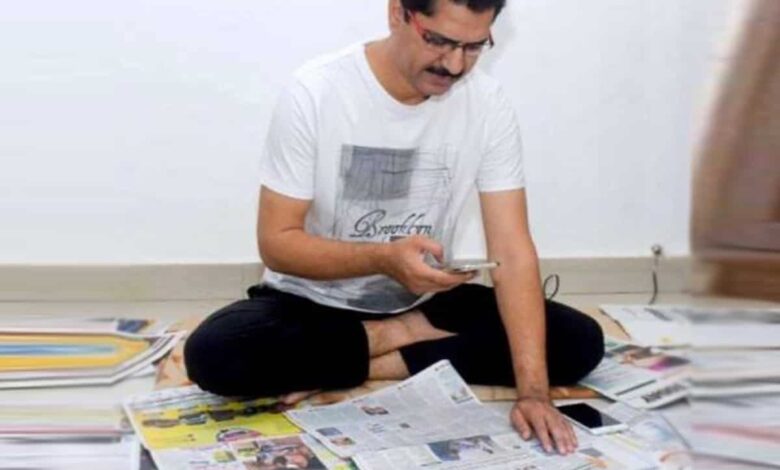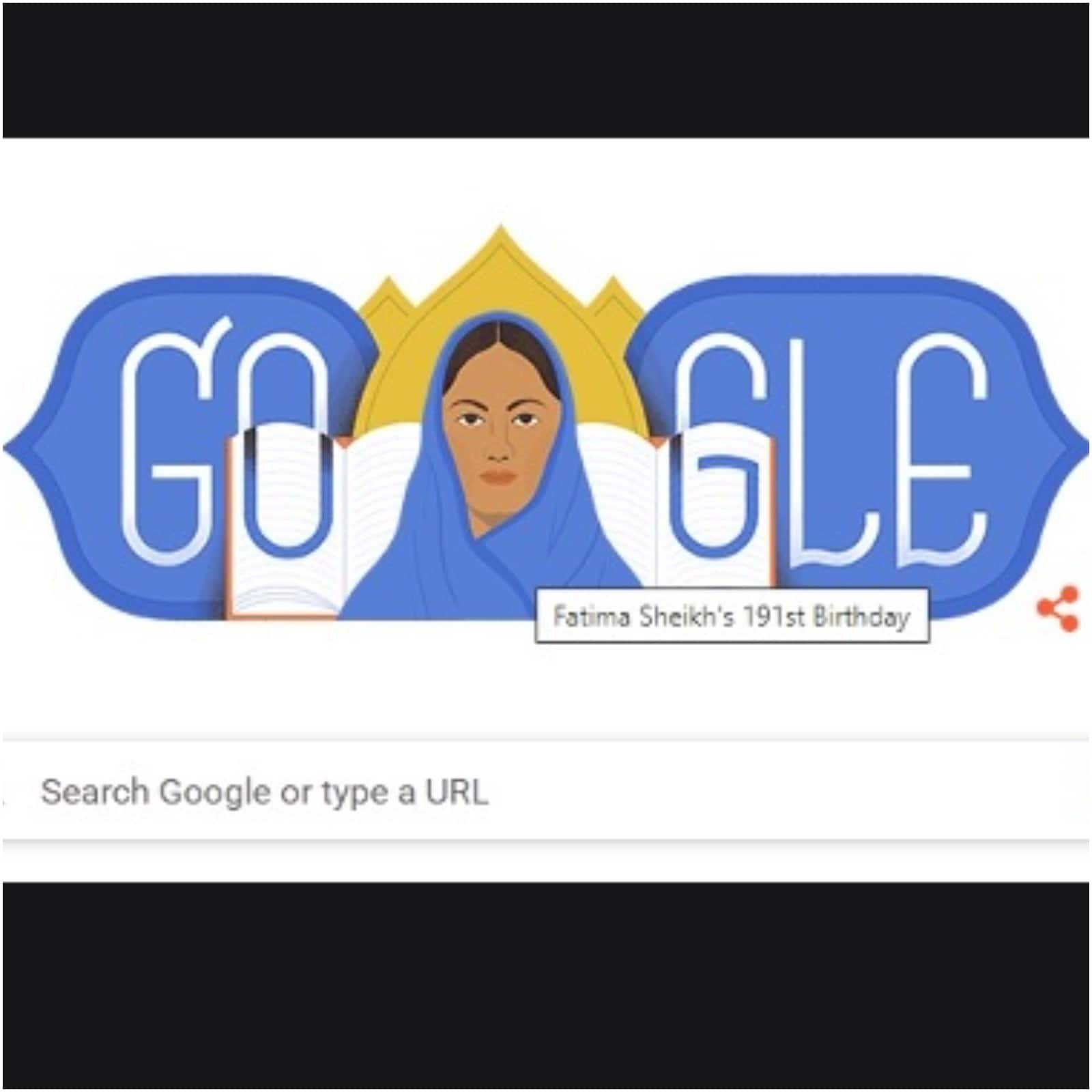NEW DELHI :

At a modest house in South Delhi’s leafy Sarita Vihar colony, a tall, handsome man woke up early in the morning to read a bunch of newspapers religiously. He didn’t only read whatever “readable” news and views a dozen newspapers in Hindi, Urdu and English carried, but also shared them with the wider world. For five years–ceaselessly, tirelessly.
His huge circle of friends, from Birmingham to Barabanki, Miami to Mumbai, Seattle to Singapore devoured the selected news and views this selfless, soft spoken news warrior shared with such dedication and devotion. I don’t know any other person on the planet doing this with such consistency for five long years. Yes, some of us news premi pick up news randomly and share them with a few friends.
Shafique Ul Hasan, a senior journalist-turned-advertising professional, completed five years of sharing the news clippings on June 24 this year. Among hundreds of friends who value his work and have congratulated Shafique Bhai—that is how most of us address him—on reaching this milestone include filmmaker Mahesh Bhatt, writer-politician Shashi Tharoor, former bureaucrat and ex-VC of Jamia Millia Islamia Najeeb Jung. They all underlined the importance of Shafique Bhai’s work—making available some of the important news and opinion pieces at one place. In our crazily busy schedule, many of us have forgotten what and how to read news. In the age of social media explosion, it has become very important to decide what news and views one should consume. At a time when fake news and viral videos are shared with an ulterior motive, Shafique Ul Hasan’s work assumes significance.
It all started with the news of Hafiz Junaid’s lynching. The young, kurta-pajama clad maulvi was returning home after shopping for Eid when a group of boys accosted him in train, beat him up so badly that he succumbed to injuries. The news shocked us. Most of us silently mourned the loss of an innocent’s life due to demonization of Muslims. Had fellow passengers intervened, young Junaid’s life could have been saved. But the hate-mongering has made us so insensitive and numb that we don’t react till the trouble reaches our own doorsteps. “This is not our problem,” we dismiss and move on. We forget the episode till a fresh case of mob violence hits the headlines.
Shafique Bhai reacted to the lynching of young Junaid in a different way. It affected him so deeply and intensely that he decided to do something beyond mourning his death silently. He made clippings of the horrific news and shared them with some of his friends on WhatsApp. And then he thought more. “What can I do to stop this madness? What power do I possess to make an intervention?”, he asked himself.
Most of us don’t realise the hidden power we possess. The strength lies in communicating the pain too. If we share some genuine, truthful news, this too is a service. Taking out morchas and petitioning authorities are not the only forms of protest. A protest is registered if news about an unkind, unjust thing or event is shared with a purpose to create awareness and help form an informed opinion. Shafique Ul Hasan decided to share the news clips from newspapers in the morning daily.
He made it part of his daily routine. So, he didn’t miss sharing the clippings even if he was travelling, in India or abroad, attending wedding celebrations or birth parties, vacationing in Europe or in the Middle East. “Once during our holiday in Europe I ensured that I woke up in the morning according to Indian time and made clippings from digital editions of the newspapers while my wife was fast asleep. Not many of my friends realized that they had shared those clippings sitting in Paris or London,” he told me recently.
Significantly, Shafique Bhai’s services have been acknowledged and appreciated widely. Many individuals and organizations have feted him for this yeomen service. Among those who have awarded him for this service include Sirajuddin Qureishi of New Delhi-based India Islamic Cultural Centre (IICC), several NGOs and organisers of a programme celebrating 200 years of Urdu Journalism recently in New Delhi.
Meanwhile, sticking to a fixed schedule for long and sitting for a few hours without a break daily began to take a toll. Shafiqul Hassan’s health got affected. His BP shot up and had to be hospitalized before his condition could have worsened. He didn’t stop from doing what he loved to do even while he recuperated in a hospital. Despite protests from his lovely family, he didn’t take a break. He resolved to complete at least five years of sharing the news and views clippings. He fulfilled the promise he had made to himself.
Meanwhile, a few well-meaning friends advised him to monetize it. Since many websites and other news outlets charge money for their products, it would have been quite fair had Shafiqul Hassan too put a price to his services. “No. I don’t want to make any money out of it. It will be free of cost till whatever time I do it,” he told me.
But he had to take a break. Many of us told Shafique Bhai to take a long break after completing five years of this selfless service. He deserves to pay attention to his health, his business and spend more quality time with family. He has announced that much-deserved break. I suggest he finds a mechanism through which he resumes this service in a more organized way. He needs to get a team of computer savvy individuals who can work with him. Rather than doing everything himself, he should delegate work to subordinates. He should now work more as a supervisor. But to create such a team, some funds will be needed. Shafique Bhai is a self-respecting man. He will never seek charity or any other funds to set up a professional team for news/views gathering and dissemination. It is the duty of all concerned citizens to ensure that such a corpus is created and this work resumes.
Mohammed Wajihuddin is a senior journalist, now associated with the Times of India, Mumbai. His write-ups are popular with wide range of readers.
source: http://www.siasat.com / The Siasat Daily / Home> Opinion / by Mohammed Wajihuddin / June 27th, 2022










